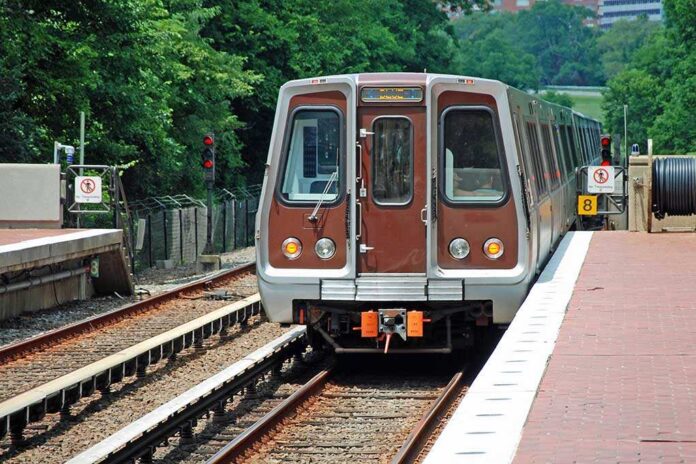
Trump’s Transportation Secretary Sean Duffy just pulled the plug on $26 million in federal grants for the Baltimore-Washington high-speed Maglev train project, calling it a “boondoggle” and marking another decisive victory for fiscal responsibility over government waste.
Story Highlights
- Federal Railroad Administration cancels over $26 million in grants for Baltimore-Washington Maglev project
- Transportation Secretary Sean Duffy denounces the high-speed rail initiative as a “boondoggle”
- Decision reflects Trump administration’s commitment to ending wasteful infrastructure spending
- Project faced mounting concerns over cost overruns, environmental impact, and questionable feasibility
Trump Administration Cuts Off the Money Spigot
On August 1, 2025, Transportation Secretary Sean Duffy delivered a clear message that the days of throwing taxpayer money at pie-in-the-sky projects are over. The Federal Railroad Administration officially terminated two federal grants totaling more than $26 million that had been allocated to the Baltimore-Washington Superconducting Magnetic Levitation Project. This decisive action represents exactly the kind of fiscal accountability that American voters demanded when they returned President Trump to office.
The Maglev project, which promised to use cutting-edge magnetic levitation technology to transport passengers between Washington D.C. and Baltimore at unprecedented speeds, had become a textbook example of government overreach and poor stewardship of public funds. Secretary Duffy’s characterization of the project as a “boondoggle” cuts through the bureaucratic doublespeak that too often shields wasteful spending from public scrutiny.
Another Failed Progressive Infrastructure Fantasy
This project embodied everything wrong with the previous administration’s approach to infrastructure spending. Rather than focusing on practical solutions to real transportation problems, government bureaucrats championed an unproven technology that faced massive regulatory hurdles, environmental concerns, and legitimate questions about ridership projections. The Baltimore-Washington corridor certainly experiences heavy traffic congestion, but American families deserve transportation solutions that actually work, not expensive experiments funded with their hard-earned tax dollars.
The decision to cancel these grants follows a pattern we’ve seen with other high-speed rail boondoggles, most notably California’s disastrous high-speed rail project that has consumed billions in taxpayer funds while delivering virtually nothing in return. When government picks winners and losers in technology markets, taxpayers invariably lose while well-connected contractors and consultants get rich.
Immediate Consequences and Long-Term Benefits
The grant cancellation effectively halts federal financial support for this misguided project, forcing Baltimore-Washington Rapid Rail and other stakeholders to face economic reality without the cushion of unlimited taxpayer subsidies. While project developers and contractors may face immediate financial consequences, American taxpayers can breathe easier knowing their money won’t be flushed down another government rat hole.
The broader implications extend far beyond this single project. Secretary Duffy’s decisive action sends a clear signal to the infrastructure industry that the Trump administration will prioritize proven, cost-effective transportation solutions over flashy but impractical technologies. This approach protects taxpayers while encouraging genuine innovation in the private sector, where market forces ensure accountability that government spending rarely achieves.
Fiscal Responsibility Returns to Washington
This grant cancellation represents more than just stopping one bad project – it demonstrates the fundamental difference between conservative governance and the reckless spending that characterized the previous administration. For too long, federal agencies operated as blank-check dispensaries for progressive pet projects, with little regard for fiscal responsibility or practical outcomes. Secretary Duffy’s willingness to call a boondoggle a boondoggle reflects the common-sense approach that voters demanded.
The $26 million saved from this cancellation may seem modest compared to the federal budget, but it represents something far more valuable: a return to the principle that government must justify every dollar it spends with taxpayer money. When multiplied across countless similar decisions throughout the Trump administration, this approach will save billions while restoring public trust in federal infrastructure policy.
Sources:
UPI – Sean Duffy revokes $26 million DC-Baltimore maglev train
Nottingham MD – US Dept of Transportation Cancels Baltimore-Washington Maglev Project












